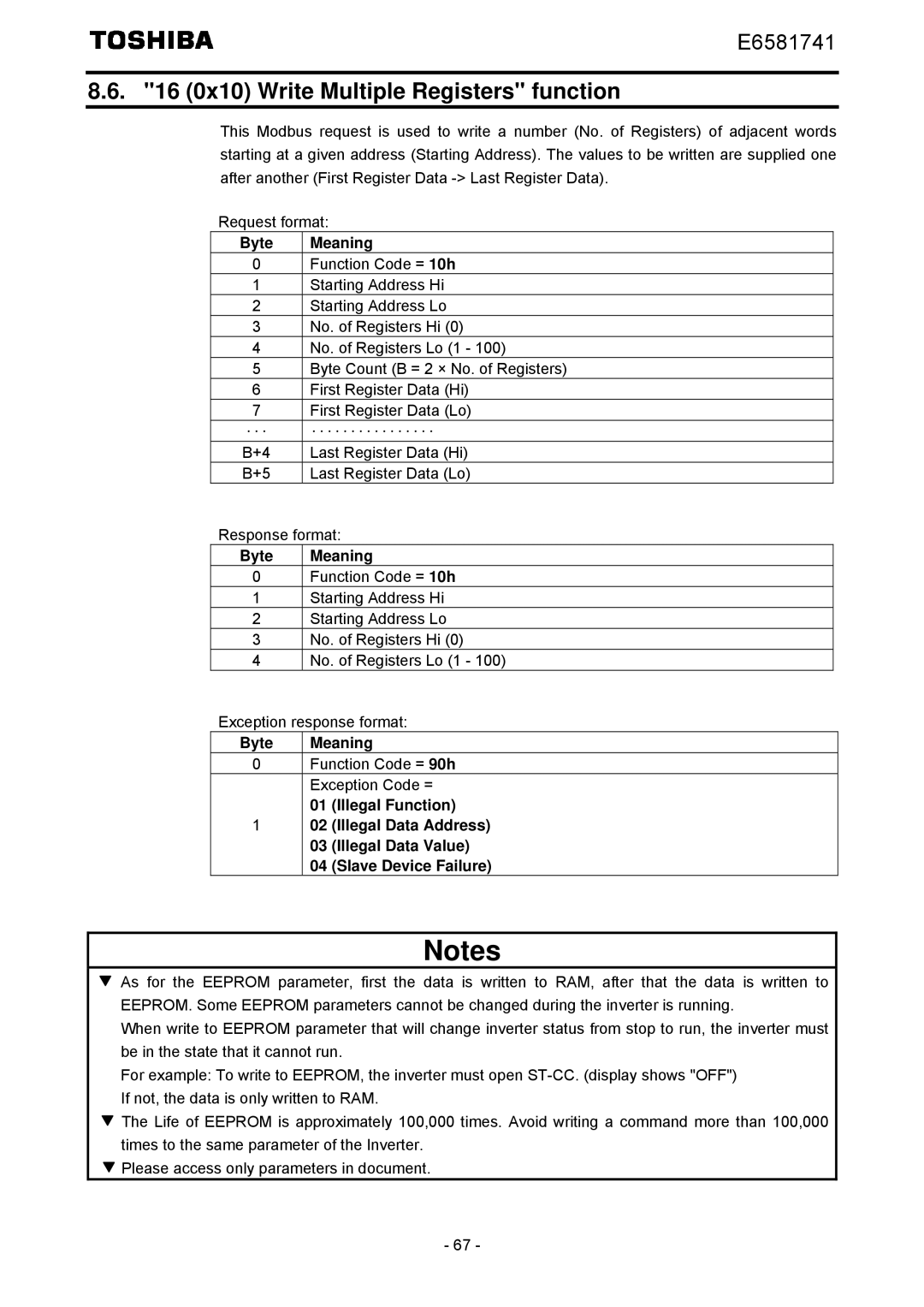
E6581741
8.6. "16 (0x10) Write Multiple Registers" function
This Modbus request is used to write a number (No. of Registers) of adjacent words starting at a given address (Starting Address). The values to be written are supplied one after another (First Register Data
Request format:
Byte | Meaning |
0 | Function Code = 10h |
1 | Starting Address Hi |
2 | Starting Address Lo |
3 | No. of Registers Hi (0) |
4 | No. of Registers Lo (1 - 100) |
5 | Byte Count (B = 2 × No. of Registers) |
6 | First Register Data (Hi) |
7 | First Register Data (Lo) |
・・・ | ・・・・・・・・・・・・・・・・ |
B+4 | Last Register Data (Hi) |
B+5 | Last Register Data (Lo) |
Response format: | |
Byte | Meaning |
0Function Code = 10h
1Starting Address Hi
2Starting Address Lo
3No. of Registers Hi (0)
4No. of Registers Lo (1 - 100)
Exception response format:
Byte Meaning
0Function Code = 90h Exception Code =
01(Illegal Function)
102 (Illegal Data Address)
03(Illegal Data Value)
04(Slave Device Failure)
Notes
![]() As for the EEPROM parameter, first the data is written to RAM, after that the data is written to EEPROM. Some EEPROM parameters cannot be changed during the inverter is running.
As for the EEPROM parameter, first the data is written to RAM, after that the data is written to EEPROM. Some EEPROM parameters cannot be changed during the inverter is running.
When write to EEPROM parameter that will change inverter status from stop to run, the inverter must be in the state that it cannot run.
For example: To write to EEPROM, the inverter must open
![]() The Life of EEPROM is approximately 100,000 times. Avoid writing a command more than 100,000 times to the same parameter of the Inverter.
The Life of EEPROM is approximately 100,000 times. Avoid writing a command more than 100,000 times to the same parameter of the Inverter.
![]() Please access only parameters in document.
Please access only parameters in document.
- 67 -
